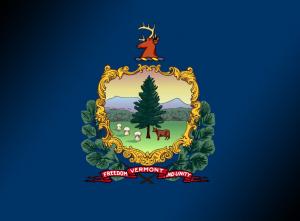Vermont OKs Adder for Biomethane Supply

Although the concept of renewable energy is most often associated with electric generation service, the Vermont Public Utility Commission has moved to broaden renewable energy initiatives to encompass natural gas as well. Relating that a sizeable majority of respondents in a recent survey had indicated a willingness to pay a premium for "renewable natural gas" (RNG), the commission authorized a natural gas local distribution company (LDC), Vermont Gas Systems (VGS), to implement an RNG program and optional RNG tariff service for its customers.
The commission stated that RNG is basically biomethane, a by-product of municipal waste, agricultural waste, manure, plant material, and compost. It noted that the state had recently approved a new RNG plant known as the Lincoln project. It added that the project developers are in negotiations to provide both Middlebury College and VGS with biomethane supplies.
In support of the RNG endeavor, the commission referenced the underlying survey, which had queried the LDC's customers. According to VGS, the results of that poll showed that 85% of its customers are willing to pay 10% more for a renewable product. Based on its findings, the company estimated that its customers could potentially consume more than 500,000 thousand cubic feet of RNG over the next five years.
Under the framework established by the commission for the RNG program, the LDC may offer its customers an option to purchase RNG for a portion of their usage. The program involves allowing retail customers to voluntarily purchase RNG in amounts equal to 10%, 25%, 50%, or 100% of their total monthly requirements at specified prices per hundred cubic feet (Ccf) as an adder to other retail charges. The commission ruled that the premium price for each Ccf of RNG should be equal to the average RNG commodity cost to VGS less the average commodity cost of natural gas. The commission told the LDC to adjust the adder price per Ccf on a quarterly basis as part of its purchased gas adjustment filings.
The commission acknowledged that given the voluntary nature of the RNG program, there is a risk that there will be a mismatch between RNG supply and demand. The commission elaborated that there may be times when customer demand for RNG outstrips actual supply. Conversely, there may be times when more RNG is available than there are RNG subscriptions to take the supply. However, the commission presented a solution to that drawback. It held that if the available supply of RNG during the previous 12 months is less than the amount purchased by VGS customers, the company may use funds it collected to purchase carbon offsets from an established carbon registry, such as the American Carbon Registry, to make up the difference.
The commission said further that under such a scenario, VGS will purchase an amount of carbon offsets equal to the amount of the revenue resulting from the undersupply so as to assure it maintains a revenue-neutral program. The company attested that its RNG supply will come from several permitted RNG projects, where biomethane will be blended with the traditional fossil fuel supply in the LDC's pipeline. In addition, it said, it plans to obtain RNG from such existing resources as solid waste facilities.
The company stated it also is exploring options to purchase RNG supply from landfill gas projects located outside Vermont, which would be received through the Trans-Canada Pipeline system. Re Vermont Gas Systems, Inc., Docket No. 8667, Sept. 6, 2017 (Vt.P.U.C.).



